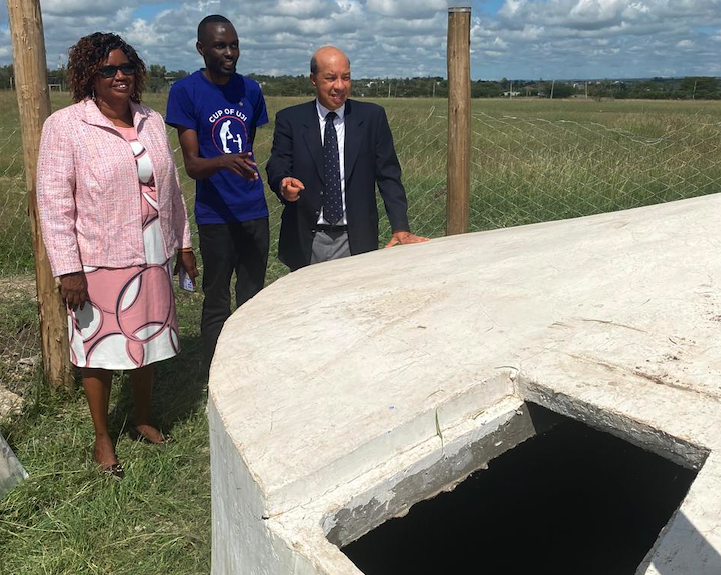
On 29 April, Brazil’s ambassador to Kenya, Silvio Alquerque, visited a cistern built with Brazilian technology at the Athi Rivers school, located in the city of Nairobi, which serves 2,000 children and young people and has school meals provided by the NGO Cup of Uji.
‘It’s a joy to see first-hand the potential of South-South cooperation exchanges between Brazil and Africa, in regions that face climatic challenges similar to those in north-eastern Brazil, through such simple and low-cost solutions that, in our experience, have had a significant impact in terms of access to water and food security,’ said the Ambassador.
The construction of the cistern was part of a technical mission to implement a set of Brazilian social technologies for water collection, seed production and food preparation in public schools in four provinces in Kenya.
The technical mission was carried out in October 2024 by the World Food Programme (WFP) Centre of Excellence against Hunger in Brazil in partnership with the Rockefeller Foundation, the Kenyan Government, WFP Kenya, the Federal University of Campina Grande (UFCG) and the Brazilian Embassy in Kenya.
In all, four schools in four towns were given cisterns, vegetable gardens and ecological cookers built together with the local community, so that everyone can learn about the technique and reproduce it elsewhere in the region.
The initiative sees the establishment of school feeding policies as an opportunity, using Brazil’s National School Feeding Programme (PNAE) as an inspiration.
‘The social technologies we implemented have already been appropriated by the school community, where the teachers and guardians have become the holders of the knowledge and are willing to expand them,’ said Joelcio Carvalho, Partnership Coordinator at the WFP Centre of Excellence against Hunger in Brazil, who worked directly on the implementation of the project in Kenya.




